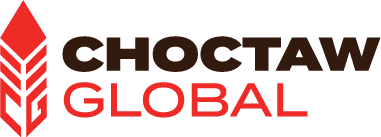Can New Tech Boost Defense Water Supply? Check Out the Trial
As nations strive for superior defense capabilities, the evaluation of new equipment is critical. Trials not only ensure reliability but also refine defense technology, improving overall military readiness. The development of trailer-mounted water containers exemplifies this. Read on to know the aspects where trial outcomes significantly shape manufacturing decisions.
Camel II- Advancing Military Water Systems in Defense
The Camel II is a critical upgrade to the long-serving M107, M149, and M1112 series 400-gallon water trailers. After three-plus years of development and testing, over 300 units were initially contracted through TACOM and Choctaw Defense in July 2011. It delivers a robust capability improvement, doubling payload capacity. This adds integrated systems for water treatment effective in any environment like chlorination, pumping, & dealing with the hazards of arid deserts to freezing arctic conditions. Additionally, while the Camel II unit is removable, it operates exclusively with the M-1095 MTV trailer, which accommodates all related services in the defense sector.
Rigorous Testing and Proven Expertise Propel Camel II
Camel II undergoes extensive testing at APG to ensure optimal performance across diverse conditions, including extreme cold and rugged terrains. The prime contractor, Choctaw Defense, leverages over 25 years of experience in engineering and defense manufacturing for the US Armed Forces. Our facilities span 350,000 square feet and use the latest technologies and are ISO 9001 certified. Choctaw's commitment to innovation in defense manufacturing was recognized with the 2012 Excellence in Innovation Award from NIST (National Institute of Standardization and Technology). This highlights our effective use of lean manufacturing processes.
Strategic Expansion for Modular Systems
Building on its strong reputation, WEW, in collaboration with Choctaw, develops its portfolio with Camel II. This focuses on multi-modal, modular fuel and water systems designed for FMTV-type vehicles. The market is expanded regarding the protected utility vehicles. These systems, pivotal in defense manufacturing, range from payloads of 2,000L (525 USG/440 Imp.G.) to 7,500L (2,000 USG/1,650 Imp. G.). They are versatile and support various deployment modes. These include air transport, rotary-wing under-sling, and low-level chute-drop. These also demonstrate flexibility and innovation in the defense sector owing to the manufacturing services.
Choctaw and WEW project a minimum 30-year lifecycle for the Camel II, reflecting their commitment to durability in the defense sector. Recently, WEW has developed its comprehensive 'End To End' service by implementing mid-life upgrades and refurbishments. These improvements include advanced systems monitoring, GBA (Generic Base Architecture) interfaces, and sophisticated asset-tracking capabilities. Essential to their service are the thorough documentary flow-down and training support functions. These ensure that each unit maintains peak operational readiness throughout its extensive service period in defense manufacturing.
Proven Expertise in Supply Chain Solutions
With over four decades of experience, the team behind Camel II has been a key player in manufacturing containerized systems for military and civilian use. The expertise of the team ensures that these systems meet the high standards required for modern military operations.
Develop Defense Capabilities with Choctaw Global
Join us at Choctaw Global as we set new standards in defense manufacturing. Our innovative solutions ensure military readiness and operational excellence. Let's build a secure future together with our expertise and commitment.

